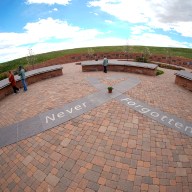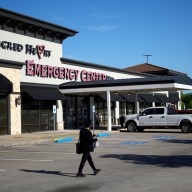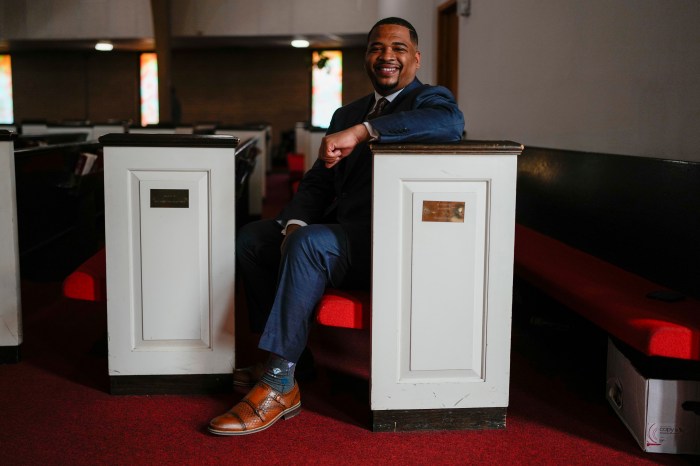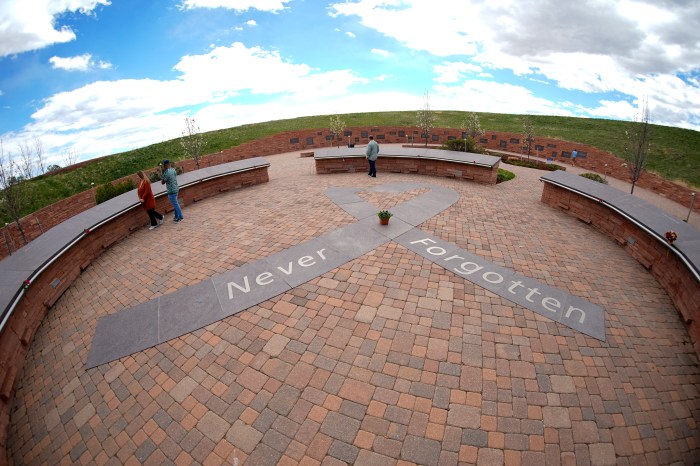KANDAHAR, Afghanistan – Taliban militants struck with fury on Sunday, killing one Canadian soldier and wounding four others in a roadside bomb attack north of Kandahar, the second such bloody incident in a week.
The attack that killed Trooper Marc Diab, 22, happened in the southern portion of Shah Wali Kot district, a mountainous region and well known transit point for Taliban fighters entering the province.
The casualties came one day after Canadian and U.S. troops launched a daring airborne assault – without injury – on a suspected Taliban command centre and supply hub in the western part of this embattled province.
The attack on Diab’s armoured vehicle happened around 1:15 p.m. local time and in the same general vicinity as a major Canadian forward operating base, an outpost which guards the Dahla dam, one of Ottawa’s signature reconstruction projects.
Brig.-Gen. Jonathan Vance, the commander of Canadian troops in Afghanistan, paid tribute to Diab, saying the young soldier died in “pursuit of a noble goal” – the desire to transform an “unstable and impoverished country into a secure and self-sufficient nation.”
All four wounded soldiers are reported in stable condition and three of them will be evacuated to a U.S. Army hospital in Landstuhl, Germany for further care.
Prime Minister Stephen Harper offered condolences to Diab’s family and friends, and wished a speedy recovery to the wounded soldiers.
“Trooper Marc Diab paid the ultimate price serving his country. His life and death serves as an example of the bravery and outstanding dedication of Canadian Forces members on this mission,” Harper said in a statement.
Gov. Gen. Michaelle Jean said she was saddened to hear of Diab’s death and the wounding of the other four soldiers.
“Despite the ever-present threat of violence and the inherent risk of the task at hand, our Canadian Forces members continue to pursue justice in a land scarred by violence and chaos,” Jean said.
“They believe that the Afghan people are entitled to the same dignity and freedom from fear we often take for granted, and which come at great cost.”
Defence Minister Peter MacKay said Canada remains committed to the mission.
“The sacrifices of these soldiers will not be forgotten and this tragic incident will not deter us from helping Afghans to reclaim their country,” he said.
Diab, a member of the Royal Canadian Dragoons based in Petawawa, Ont., is the 112th Canadian soldier to die during the Afghan mission since 2002.
Just last week three other soldiers – Warrant Officer Dennis Raymond Brown, Cpl. Dany Olivier Fortin and Cpl. Kenneth Chad O’Quinn – were killed in a roadside bombing in Arghandab, northwest of Kandahar city.
“It is a stark reminder of the grave risk and the unparalleled sacrifice the men and women of our Canadian Forces are prepared to make in service to our country,” said Liberal Leader Michael Ignatieff of the four recent deaths.
Over half of the country’s casualties were suffered in roadside bombings, even though the Canadian military has invested heavily in trying to detect and counter improvised explosives.
It has stepped up air patrols, using both helicopters and unmanned surveillance aircraft, and employed sophisticated forensic techniques to track bomb-makers and explosive factories.
“We do everything we can, (but) it is a challenge,” Vance said.
The army has been reasonably successful in detecting and disarming literally hundreds of roadside bombs in and around Kandahar city since the improved surveillance began.
Some of that success was attributed to local Afghans telephoning in warnings to police about devices or suspicious individuals, but the further away from the city, the less frequently that happens.
Part of the reason is the remote geography of both Shah Wali Kot and its southern neighbour Arghandab.
But there is also a fair degree of skepticism and even resentment of foreign troops in the most northern reaches of the province.
Canadian troops established a patrol base in Shah Wali Kot in early 2006 and began constructing a full-fledged forward operating base, known as Martello.
They came with promises of security and development, but were forced to pull out of the area when Taliban militants threatened to overrun Kandahar from the western districts of Panjwaii and Zhari.
Canadian commanders said last week’s attack could signal that the Taliban are shifting their focus towards the comparatively quiet sectors of north of the provincial capital.
It is a trend Vance noted.
“We need to pay attention to the Arghandab and Shah Wali Kot, for sure and we are,” he told reporters Sunday night.
Vance said Canadian troops are patrolling as much as they can in the region, which has prospered, partly because it is reasonably united under one tribe and somewhat isolated from the violence to the south and west by a ridge of mountains.
“This is an area of the province, particularly the Arghandab, that has a lot going for it,” Vance insisted.
“It has rich, fertile land for farming. It has every reason to be able to resist the insurgency and thus far it has.”

















